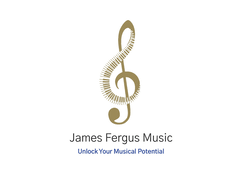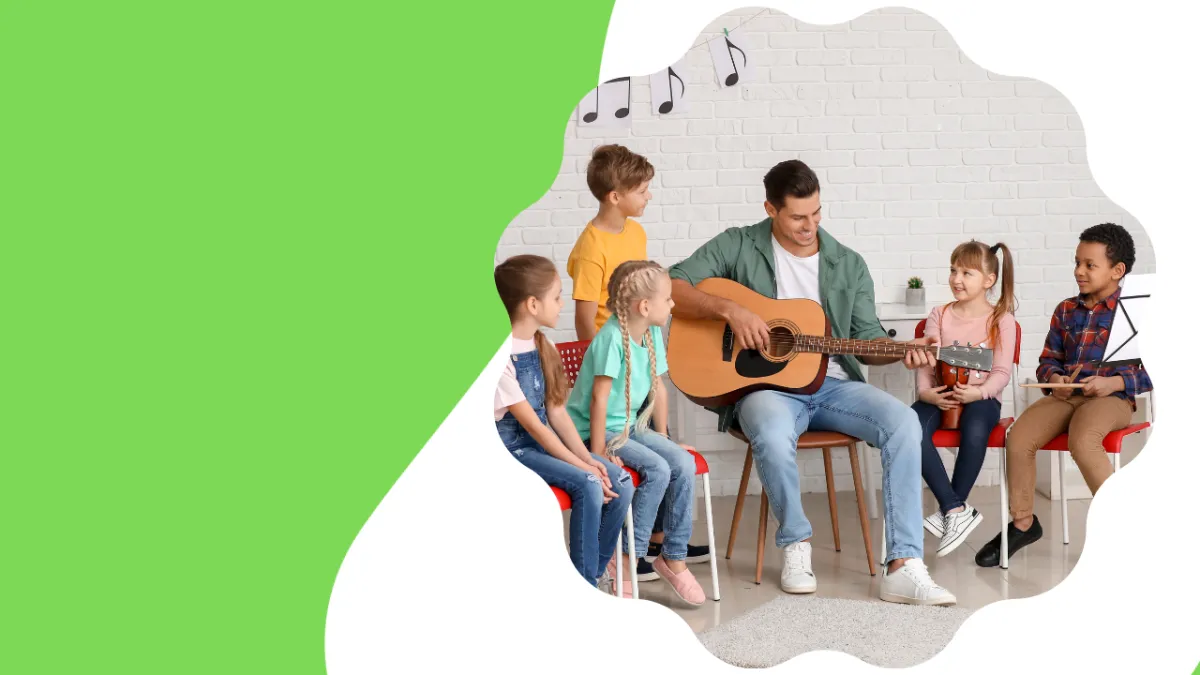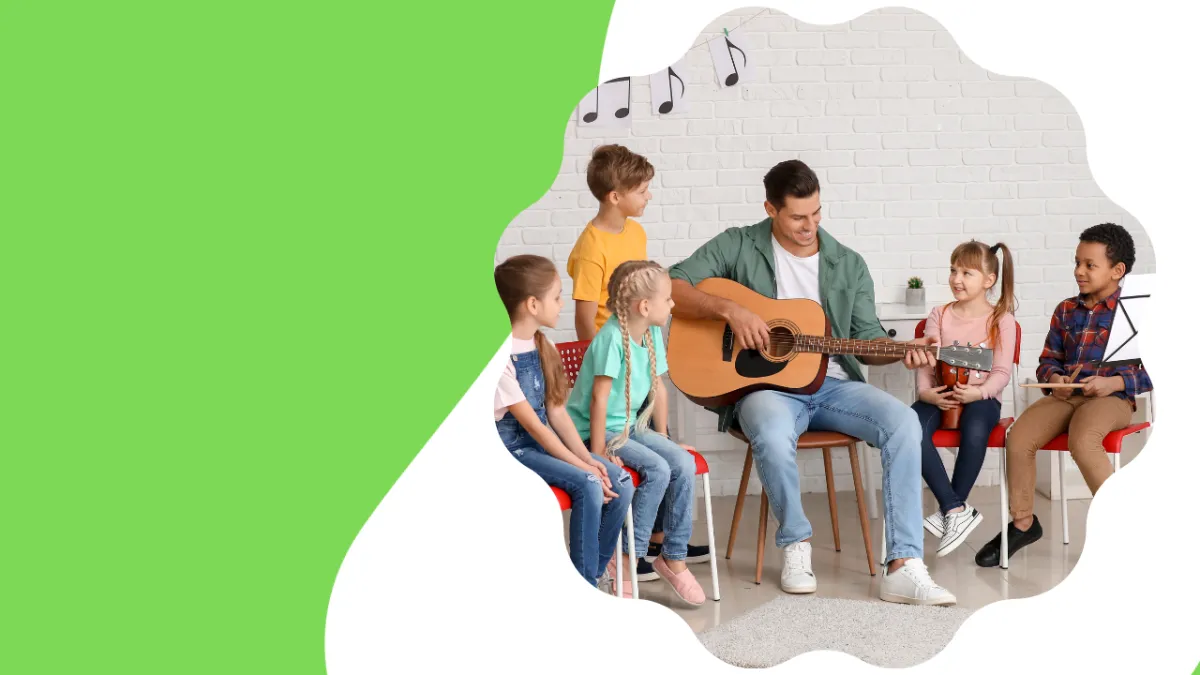
James Fergus Music
Classical piano lessons Blog
Welcome to the James Fergus Music Blog, your go-to resource for all things piano and music education! Here, you'll find a wealth of articles designed to inspire and guide you on your musical journey, whether you're a complete beginner or an experienced pianist looking to refine your skills. Our blog covers a diverse range of topics, from detailed comparisons between classical and pop music to practical tips for incorporating music into your busy life.
At James Fergus Music, we believe that learning to play the piano is a rewarding experience at any age, and we're here to support you every step of the way. Explore our latest posts, discover helpful practice strategies, and stay informed about the benefits of musical education. Dive into our blog to uncover insights, gain new perspectives, and connect with a community of music enthusiasts. We're glad you're here, and we hope you find our content both informative and inspiring.


Why Is It Important to Learn How to Read Music?
Why Is It Important to Learn How to Read Music?

Music is often described as a universal language, capable of conveying emotions and stories without words. At the heart of this language lies music notation, a system that allows musicians to communicate and preserve their musical ideas. Learning to read music is an essential skill for any serious musician, offering numerous benefits that go beyond simply playing an instrument. In this article, we will explore why it is important to learn how to read music, how it empowers musicians to play a wide range of 'pieces', the ease of starting this learning journey, and the broader cognitive and creative benefits it provides.
Playing Any Song / Piece You Want
1. Access to a Vast Repertoire
One of the most compelling reasons to learn how to read music is the access it provides to a vast repertoire of pieces across different genres and time periods. Whether you are interested in classical, jazz, pop, or any other style, sheet music allows you to play pieces by the greatest composers and contemporary artists alike. By understanding music notation, you can explore works that span centuries, from Beethoven's symphonies to modern pop hits.
2. Accurate Interpretation
Reading music enables musicians to accurately interpret a composer's intentions. Notation provides detailed instructions on pitch, rhythm, dynamics, and articulation, allowing you to recreate the music as it was intended to be heard. This precision is especially important in classical music, where fidelity to the score is highly valued. Being able to read music ensures that you can faithfully perform pieces as written, respecting the nuances and subtleties that contribute to the performance.
3. Versatility and Adaptability
Knowing how to read music makes you a more versatile and adaptable musician. It equips you with the ability to quickly learn new pieces, collaborate with other musicians, and participate in ensembles or orchestras. When you can read music, you are not limited to playing by ear or memorising pieces, which can be time-consuming and limiting. Instead, you can sight-read and perform new music with confidence, opening up a world of opportunities for musical growth and collaboration.

The Quick and Easy Start
1. Basic Concepts Are Simple to Grasp
The basics of reading music are relatively straightforward and can be learned quickly with consistent practice. Music notation consists of a few fundamental elements: notes, rests, clefs, and time signatures. Notes represent pitch and duration, rests indicate silences, clefs determine the pitch range, and time signatures indicate the rhythmic structure. These basic concepts can be introduced gradually, allowing beginners to start playing simple melodies and rhythms almost immediately.
2. Learning Tools and Resources
There are countless resources available to help you learn to read music, ranging from online tutorials and apps to books and music teachers. Interactive tools and games can make the learning process engaging and fun, providing instant feedback and reinforcement. Many of these resources are designed to break down the complexities of music notation into manageable steps, making it easier for beginners to progress at their own pace.
3. Immediate Application
One of the most motivating aspects of learning to read music is the immediate application of the skills you acquire. As you learn to read notes and rhythms, you can start playing real music right away. This immediate gratification reinforces your learning and encourages you to keep practicing. The ability to see your progress and play recognisable tunes from the start is a powerful incentive to continue developing your reading skills.
Cognitive and Creative Benefits
1. Enhanced Cognitive Skills
Learning to read music has been shown to enhance various cognitive skills, including memory, attention, and spatial-temporal reasoning. Reading music involves interpreting symbols and translating them into physical movements, a process that engages multiple areas of the brain. This mental exercise strengthens neural connections and improves overall cognitive function. Studies have also found that musicians who read music often perform better in tasks requiring executive function, problem-solving, and multitasking.
2. Improved Musical Understanding
Reading music deepens your understanding of musical structure and theory. By analyzing written scores, you gain insights into how melodies, harmonies, and rhythms are constructed. This knowledge enhances your ability to compose, improvise, and arrange music. It also helps you to appreciate the intricacies of different musical styles and forms. Understanding the underlying principles of music through notation allows you to approach playing and listening with a more informed and critical ear.
3. Creative Expression
Being able to read music expands your creative potential. It provides a framework for experimenting with new ideas and exploring different musical concepts. Whether you are composing original pieces or interpreting existing works, reading music gives you the tools to express your creativity more fully. It also allows you to communicate your musical ideas to others effectively, facilitating collaboration and innovation. The ability to read and write music notation opens up endless possibilities for creative exploration and artistic expression.

Conclusion
In conclusion, learning to read music is a valuable skill that offers numerous benefits for musicians of all levels. It grants access to a vast and diverse repertoire, enabling you to play any song you desire with accuracy and versatility. The basics of music notation are easy to grasp, with a wealth of resources available to support your learning journey. Beyond the practical advantages, reading music enhances cognitive skills, deepens musical understanding, and expands creative expression. Whether you are a beginner or an experienced musician, the ability to read music enriches your musical experience and empowers you to achieve your full potential. So, take the first step today and unlock the transformative power of music notation by booking a free piano class today!
We're thrilled that you've enjoyed our blogs and are eager to explore the world of music even further. The journey doesn't have to end here! If you're yearning to expand your musical horizons, we have an exciting opportunity for you.
Whether you're a beginner eager to learn the basics or an experienced musician seeking to refine your skills, our free music class is perfect for you. Unleash your creativity, discover new sounds, and cultivate a deeper understanding of music and schedule a free music class with us by clicking the button below!

Why Is It Important to Learn How to Read Music?
Why Is It Important to Learn How to Read Music?

Music is often described as a universal language, capable of conveying emotions and stories without words. At the heart of this language lies music notation, a system that allows musicians to communicate and preserve their musical ideas. Learning to read music is an essential skill for any serious musician, offering numerous benefits that go beyond simply playing an instrument. In this article, we will explore why it is important to learn how to read music, how it empowers musicians to play a wide range of 'pieces', the ease of starting this learning journey, and the broader cognitive and creative benefits it provides.
Playing Any Song / Piece You Want
1. Access to a Vast Repertoire
One of the most compelling reasons to learn how to read music is the access it provides to a vast repertoire of pieces across different genres and time periods. Whether you are interested in classical, jazz, pop, or any other style, sheet music allows you to play pieces by the greatest composers and contemporary artists alike. By understanding music notation, you can explore works that span centuries, from Beethoven's symphonies to modern pop hits.
2. Accurate Interpretation
Reading music enables musicians to accurately interpret a composer's intentions. Notation provides detailed instructions on pitch, rhythm, dynamics, and articulation, allowing you to recreate the music as it was intended to be heard. This precision is especially important in classical music, where fidelity to the score is highly valued. Being able to read music ensures that you can faithfully perform pieces as written, respecting the nuances and subtleties that contribute to the performance.
3. Versatility and Adaptability
Knowing how to read music makes you a more versatile and adaptable musician. It equips you with the ability to quickly learn new pieces, collaborate with other musicians, and participate in ensembles or orchestras. When you can read music, you are not limited to playing by ear or memorising pieces, which can be time-consuming and limiting. Instead, you can sight-read and perform new music with confidence, opening up a world of opportunities for musical growth and collaboration.

The Quick and Easy Start
1. Basic Concepts Are Simple to Grasp
The basics of reading music are relatively straightforward and can be learned quickly with consistent practice. Music notation consists of a few fundamental elements: notes, rests, clefs, and time signatures. Notes represent pitch and duration, rests indicate silences, clefs determine the pitch range, and time signatures indicate the rhythmic structure. These basic concepts can be introduced gradually, allowing beginners to start playing simple melodies and rhythms almost immediately.
2. Learning Tools and Resources
There are countless resources available to help you learn to read music, ranging from online tutorials and apps to books and music teachers. Interactive tools and games can make the learning process engaging and fun, providing instant feedback and reinforcement. Many of these resources are designed to break down the complexities of music notation into manageable steps, making it easier for beginners to progress at their own pace.
3. Immediate Application
One of the most motivating aspects of learning to read music is the immediate application of the skills you acquire. As you learn to read notes and rhythms, you can start playing real music right away. This immediate gratification reinforces your learning and encourages you to keep practicing. The ability to see your progress and play recognisable tunes from the start is a powerful incentive to continue developing your reading skills.
Cognitive and Creative Benefits
1. Enhanced Cognitive Skills
Learning to read music has been shown to enhance various cognitive skills, including memory, attention, and spatial-temporal reasoning. Reading music involves interpreting symbols and translating them into physical movements, a process that engages multiple areas of the brain. This mental exercise strengthens neural connections and improves overall cognitive function. Studies have also found that musicians who read music often perform better in tasks requiring executive function, problem-solving, and multitasking.
2. Improved Musical Understanding
Reading music deepens your understanding of musical structure and theory. By analyzing written scores, you gain insights into how melodies, harmonies, and rhythms are constructed. This knowledge enhances your ability to compose, improvise, and arrange music. It also helps you to appreciate the intricacies of different musical styles and forms. Understanding the underlying principles of music through notation allows you to approach playing and listening with a more informed and critical ear.
3. Creative Expression
Being able to read music expands your creative potential. It provides a framework for experimenting with new ideas and exploring different musical concepts. Whether you are composing original pieces or interpreting existing works, reading music gives you the tools to express your creativity more fully. It also allows you to communicate your musical ideas to others effectively, facilitating collaboration and innovation. The ability to read and write music notation opens up endless possibilities for creative exploration and artistic expression.

Conclusion
In conclusion, learning to read music is a valuable skill that offers numerous benefits for musicians of all levels. It grants access to a vast and diverse repertoire, enabling you to play any song you desire with accuracy and versatility. The basics of music notation are easy to grasp, with a wealth of resources available to support your learning journey. Beyond the practical advantages, reading music enhances cognitive skills, deepens musical understanding, and expands creative expression. Whether you are a beginner or an experienced musician, the ability to read music enriches your musical experience and empowers you to achieve your full potential. So, take the first step today and unlock the transformative power of music notation by booking a free piano class today!
Contact Us
Open Hours
Social Media
Monday - Friday: 8:00 AM - 5:00 PM
Saturday: 8:00 AM - 5:00 PM
Sunday: 8:00 AM - 5:00 PM

James Fergus Music
Classical piano lessons Blog

Our mission (other than repairing hail damage) is to inform you with relevant, factual and accessible content about automotive hail damage repair and paintless dent removal. If your vehicle is ever ravaged by a hail storm, you'll find everything you need to know before having the hail damage repaired. Speak with a certified technician for a quick response.

Why Is It Important to Learn How to Read Music?
Why Is It Important to Learn How to Read Music?

Music is often described as a universal language, capable of conveying emotions and stories without words. At the heart of this language lies music notation, a system that allows musicians to communicate and preserve their musical ideas. Learning to read music is an essential skill for any serious musician, offering numerous benefits that go beyond simply playing an instrument. In this article, we will explore why it is important to learn how to read music, how it empowers musicians to play a wide range of 'pieces', the ease of starting this learning journey, and the broader cognitive and creative benefits it provides.
Playing Any Song / Piece You Want
1. Access to a Vast Repertoire
One of the most compelling reasons to learn how to read music is the access it provides to a vast repertoire of pieces across different genres and time periods. Whether you are interested in classical, jazz, pop, or any other style, sheet music allows you to play pieces by the greatest composers and contemporary artists alike. By understanding music notation, you can explore works that span centuries, from Beethoven's symphonies to modern pop hits.
2. Accurate Interpretation
Reading music enables musicians to accurately interpret a composer's intentions. Notation provides detailed instructions on pitch, rhythm, dynamics, and articulation, allowing you to recreate the music as it was intended to be heard. This precision is especially important in classical music, where fidelity to the score is highly valued. Being able to read music ensures that you can faithfully perform pieces as written, respecting the nuances and subtleties that contribute to the performance.
3. Versatility and Adaptability
Knowing how to read music makes you a more versatile and adaptable musician. It equips you with the ability to quickly learn new pieces, collaborate with other musicians, and participate in ensembles or orchestras. When you can read music, you are not limited to playing by ear or memorising pieces, which can be time-consuming and limiting. Instead, you can sight-read and perform new music with confidence, opening up a world of opportunities for musical growth and collaboration.

The Quick and Easy Start
1. Basic Concepts Are Simple to Grasp
The basics of reading music are relatively straightforward and can be learned quickly with consistent practice. Music notation consists of a few fundamental elements: notes, rests, clefs, and time signatures. Notes represent pitch and duration, rests indicate silences, clefs determine the pitch range, and time signatures indicate the rhythmic structure. These basic concepts can be introduced gradually, allowing beginners to start playing simple melodies and rhythms almost immediately.
2. Learning Tools and Resources
There are countless resources available to help you learn to read music, ranging from online tutorials and apps to books and music teachers. Interactive tools and games can make the learning process engaging and fun, providing instant feedback and reinforcement. Many of these resources are designed to break down the complexities of music notation into manageable steps, making it easier for beginners to progress at their own pace.
3. Immediate Application
One of the most motivating aspects of learning to read music is the immediate application of the skills you acquire. As you learn to read notes and rhythms, you can start playing real music right away. This immediate gratification reinforces your learning and encourages you to keep practicing. The ability to see your progress and play recognisable tunes from the start is a powerful incentive to continue developing your reading skills.
Cognitive and Creative Benefits
1. Enhanced Cognitive Skills
Learning to read music has been shown to enhance various cognitive skills, including memory, attention, and spatial-temporal reasoning. Reading music involves interpreting symbols and translating them into physical movements, a process that engages multiple areas of the brain. This mental exercise strengthens neural connections and improves overall cognitive function. Studies have also found that musicians who read music often perform better in tasks requiring executive function, problem-solving, and multitasking.
2. Improved Musical Understanding
Reading music deepens your understanding of musical structure and theory. By analyzing written scores, you gain insights into how melodies, harmonies, and rhythms are constructed. This knowledge enhances your ability to compose, improvise, and arrange music. It also helps you to appreciate the intricacies of different musical styles and forms. Understanding the underlying principles of music through notation allows you to approach playing and listening with a more informed and critical ear.
3. Creative Expression
Being able to read music expands your creative potential. It provides a framework for experimenting with new ideas and exploring different musical concepts. Whether you are composing original pieces or interpreting existing works, reading music gives you the tools to express your creativity more fully. It also allows you to communicate your musical ideas to others effectively, facilitating collaboration and innovation. The ability to read and write music notation opens up endless possibilities for creative exploration and artistic expression.

Conclusion
In conclusion, learning to read music is a valuable skill that offers numerous benefits for musicians of all levels. It grants access to a vast and diverse repertoire, enabling you to play any song you desire with accuracy and versatility. The basics of music notation are easy to grasp, with a wealth of resources available to support your learning journey. Beyond the practical advantages, reading music enhances cognitive skills, deepens musical understanding, and expands creative expression. Whether you are a beginner or an experienced musician, the ability to read music enriches your musical experience and empowers you to achieve your full potential. So, take the first step today and unlock the transformative power of music notation by booking a free piano class today!
We're thrilled that you've enjoyed our blogs and are eager to explore the world of music even further. The journey doesn't have to end here! If you're yearning to expand your musical horizons, we have an exciting opportunity for you.
Unleash your creativity, discover new sounds, and cultivate a deeper understanding of music by clicking the button below!
Contact Us
07548 054025
Norwich Norfolk NR2
Service Hours
Monday - Friday: 8:00 AM - 5:00 PM
Saturday: 8:00 AM - 5:00 PM
Sunday: 8:00 AM - 5:00 PM
Social Media













